|
Vidas: Hi guys, this is Vidas.
Ausra: And Ausra. V: Let’s start episode 287 of Secrets of Organ Playing Podcast. This question was sent by Laurie and also Dianne and they both are our Total Organist students and I’ve asked the question at the end of the week “What are they struggling with recently?” And Laurie answered by writing: My biggest struggle has always been, just do it. If I can get myself to the organ bench - oh, and by the way I have a practice instrument in my home, I can have a good time practicing. But for some reason, it is very difficult to get myself to the bench. And then Dianne added: I often have the same issue. I have a practice organ at home as well, but I am not actively playing organ in any church right now... Our church only has a keyboard (and unfortunately they are happy with that). So I always feel like there are more pressing things for me to do than practice, but there are few things I enjoy more. That’s a nice comment Ausra, right? A: Yes, it is. And really common for I think many people. V: Sitting down on the organ bench is half of the job, right? A: Yes, it is because if you sit down you definitely will play something. V: If you said to yourself “OK, I don’t have an hour, I don’t have half a day to practice, and I even don’t have 30 minutes, maybe 15 minutes I don’t have.” What about just sight-reading one page. What about 2 minutes. Can I sit down on the bench and play for 2 minutes without stopping. And guess what happens. You continue to play more, right? A: True. But for me for example if I want to relax when I’m playing, I usually play music that I know well. V: What would that be? Songs by ABBA? A: (laughs) No, it would be like E flat Major Prelude and Fugue by J.S. Bach. Or, if I don’t have time it would be a chorale by J.S. Bach. V: Performed by ABBA? A: No, performed by me. And if I play piano it would probably be a piece by Johann Brahms or a couple of suites by J. S. Bach. V: You have a few favorites, right? A: Yes, I have a few favorites that make me happy. V: And you would take those favorites to an uninhabited island. A: Or the middle movement of Beethoven’s Pathetic Sonata. I love it. In E Flat Major. V: Well, who wouldn’t. Beethoven is so sweet sometimes, especially his slow movements. A: Well sometimes I play Mozart’s variations in A Major for piano. That’s fun too. V: It seems like you are a fan of gentle and sweet music, right Ausra? A: Well for relaxation, yes. V: Would you recommend to Laurie and Dianne to pick some favorite pieces to play? A: Sure, and maybe after playing that favorite piece you would continue playing something else. Something that you need or want to learn. V: Oh, it’s like giving yourself a reward just for sitting down. Give yourself a musical candy. And then once you have your candy you can eat soup and vegetables and healthy stuff. A: Maybe not such a good idea to eat candy before soup but… V: But you do it. A: Yes. V: Nice. A: Well for example what for me is the most motivating thing to play, to practice even when I’m tired and I don’t have time, and then I just want to lie down and don’t do anything. Like yesterday for example. I had a very stressful and long day… V: Doing what? A: Well I was teaching at school and then in the middle of that I had to go the hospital to get my medicine. V: And what did I do during that time. A: Well you drove me to that hospital. But then later on I had to come back at school with all my medicine and I still had to teach classes and Vidas was waiting for me in the car that time. And then I had to come back home to do all the homely stuff and then I felt so exhausted so I decided to take a walk. So Vidas and I walked in the woods for maybe an hour or an hour and a half and I still felt really exhausted and Vidas told me “Oh don’t practice today.” But I thought I have to practice today because it was Friday and upcoming Tuesday I have a recital. V: How was your blood pressure yesterday? A: It was good. It was low. V: Low. So low is good, for you. A: Yes. V: The reason I suggested you skip practice was that I was worried about your blood pressure jumping up to the sky. A: Well you better worry about your blood pressure. V: Why? A: I don’t know. V: OK. I guess walking in the woods really helped you to relax and get some energy from growing things. A: Yes, but you know to make a long story short what I meant is that if you have an upcoming performance, any kind of performance, church service, recital, hymn festival, it will push you to practice regularly. So you always need to have a goal and to set a date by which you have to learn something and to do something. V: I’m just thinking if people can always get this kind of public accountability like we do. We schedule public performances all the time and we have the motivation to practice this way. A: Both Laurie and Dianne thought that we have home organ so we can make recitals, home recitals for family or friends. V: Right, invite… A: Neighbors. V: Pets. If they have pets their pets could sit around. A: Well home music, home concerts. It’s a good idea. Maybe ask the neighbors. Maybe they have never heard organ playing and maybe they don’t know that you are playing organ. V: What if their level is too low for performing in public. If they feel they are just beginners, what to do then? A: Well anyway if you practice then you will improve. V: And you could perform at your level. You don’t necessarily have to play Beethoven or Vierne but you could play 2-part inventions. You could play hymns. Even if you can’t play 4-part hymns you could play soprano and bass with the hands only and that would sound actually very nice. A: And Dianne wrote that her church has only a keyboard and doesn’t care or getting organ maybe she could look for another church. V: Right. Don’t feel like you have to work there or play there all your life. I you do your art and your art is not appreciated there why bother, right? A: True. V: If the church maybe feels that they have other priorities. Of course they should have other priorities besides organ but organ is also very important integral part of the service. Besides Pastor or Priest, organist is sort of communicator and collaborator on the same level and probably most highly trained professional in the congregation. A: True. V: So yes, go where you would be more appreciated. I’m not sure that she is feeling that way but if that would be the case I would probably slowly start looking elsewhere. A: And when you have organ at home think how lucky you are because there are so many organists that would do anything to have an organ at home and they don’t so you are privileged so take advantage of it. V: And when you don’t have an organ at home, when you have to go out and play someplace else you feel more motivated actually. Like if we go to the gym and we want to work out in the gym we feel more motivated than working out at home, right? Because what, we’re paying for the membership at the gym, right? It’s an investment and other people will be practicing in there in that group too so it is supporting each other. So going out to the church to practice is actually good, healthy. A lot of artists don’t like to work and create at home because of family situations, right? So they kind of set up their studio on the other side of the town maybe. A: Well with many artists in Lithuania I think it’s another reason why we don’t want to work at home. Because at least some of the time artists drank a lot of alcohol and if you have a family you definitely don’t want to do that in front of your kids and your wife. So I think it was their way to escape and be a little bit bohemian. That’s my opinion. V: You are definitely right about that. There’s another side of creating art. Escaping reality. A: But I don’t think many organists have the same problem as artists used to have in those days. V: Right. And because organists are always creating alone and performing alone we’re used to being alone. And artists they get together in groups sometimes, right? They discuss art and not only art. In groups it’s a different feeling. OK, so closing probably advice would be to get some public accountability. Definitely. A: Yes I think this would be the best motivation. V: And even consider modern tools. Technology. What about you can perform at home and you can record yourself at home and publish it online. That would be your motivation. You can even set up a social media channel where your followers would start waiting for your new videos or recordings to come up regularly. You would feel responsible for showing up and practicing, right? A: And if your family and other relations live in another town you could perform for them on Skype. V: Oh, nice, right. A: That’s a possibility. V: That’s a nice way to interact with family. Keep connected. Thank you guys for listening, for sending us your thoughtful questions and feedback. We love helping you grow and remember when you practice… A: Miracles happen.
This blog/podcast is supported by Total Organist - the most comprehensive organ training program online. It has hundreds of courses, coaching and practice materials for every area of organ playing, thousands of instructional videos and PDF's. You will NOT find more value anywhere else online...
Total Organist helps you to master any piece, perfect your technique, develop your sight-reading skills, and improvise or compose your own music and much much more... Sign up and begin your training today. And of course, you will get the 1st month free too. You can cancel anytime. Join 80+ other Total Organist students here
Comments
I woke up this morning a little earlier than regularly and my mind started the usual worrying cycle about the future: will I earn enough money, will I have food on the table, is my business going in the right direction etc.
With this mindset there was no way I could work on my Op. 69 this morning because worry breeds from fear and fear paralyzes creativity. Luckily I also knew the easy way out - simply taking action. Sure enough, when I fired up my computer and opened the draft of the score I was going to work on my worry disappeared. I was no longer concerned about money, food or the direction my business is taking. I knew that if I keep being generous and provide value, I will increase my customer’s trust. And trust is everything. It will make or break anyone’s business. So I felt calm and ready to do my work. It doesn’t have to be long but 15 minutes of focused and intense creativity is a good start. During that time I worked on the first half of the piece and after those 15 minutes it felt good. It felt good to start my morning creatively despite my initial resistance and worry. It felt good to get a little closer to my goal of creating 200 opuses. By the way, the same happened to me yesterday when I was planning to go to a gym. Again, my mind was in a fearful state before this but once I drove there, changed my clothes and climbed on the treadmill I felt calmness again. Sort of reassurance that it’s going to be OK. One way or the other it’s going to be OK, I know that. As the past experiences showed me, my worse case scenario is probably 10 times as worse as it would be in reality so I know my mind is playing tricks on me. It does all of this to distract me from the things that truly matter to me - from creating. And sometimes I give in to this distraction, sometimes I postpone my creative activities. But I also know a simple but magical cure - taking action. Doing the dishes, mowing the lawn, vacuuming the floor, working out, taking a walk, sight-reading on the organ, improvising, drawing Pinky and Spiky comic strip, writing a blog post. I was drawing the above comic strip in the church while listening to rather boring presentation about our Culture Center at Vilnius University. This way I could amuse myself... The squiggle monsters were the first ones I ever drew back in 2015 after a big break since 7th grade. These actions are for me. What are the actions that help defeat your worries and fears? Last Saturday we had lots of guests in the house. An opening meeting for the book club. Because our friends didn’t see each other for the entire summer, everyone wanted to tell many stories. Some were less concise than others. To make a long story short and including lots of wonderful potluck food, our guests left the house only around 9 PM. And we started the meeting at 2 PM. Entire Saturday spent discussing books… Yummy… So it’s no surprise that the guests voices whirled in my head already from 2 AM tonight. Luckily even they went to sleep around 6 AM so I did get some sweet sleep afterwards. When the time came in the morning to pick up apples in the garden and do my pull-up routine, I decided I’m gonna go for a ladder: 1-2-3-2-1. If you’re not familiar with the concept of the ladder, it’s very nice for warming up and avoiding muscle strain because you start small, say with just 1 pull-up. Then you rest and do 2 pull-ups. Then rest and do 3. And you continue this way until you reach the maximum number of reps you can do. Then you climb down the ladder. For example, 2 pull-ups, rest and 1 pull-up. I kind of enjoyed doing it this morning. Of course, the middle 3 reps were extremely difficult to complete. That’s OK, tomorrow I can repeat the same ladder again until it’s not that hard and I’m ready to add one more pull-up to the ladder. I guess the concept of the ladder could be applied to many activities that you do, even the creative ones. Let’s say you want to write for a certain period of time or you look for a certain number of words. So your ladder with words might look like this: 100-200-300-200-100. If you are a beginner, you can start even with a smaller amount of words: 50-100-150-100-50. Or if you want to draw, you can aim for time in minutes: 5-10-15-10-5. Or it could be longer - 5-10-15-20-25-30-25-20-15-10-5. Or if you’re playing an instrument, you can gradually speed up the tempo and slow down again. Right of the top of my head I would say that for organists this could obviously mean increasing and reducing practice time or playing increasingly difficult combinations of voices. If you find other uses for this ladder method, let me know. The point is to have some initial sets to warm up, then reach your maximum and then cool down again while taking regular breaks to rest. This should work for people who don’t like to work or practice or exercise without interruption for a long period of time. Choose your own ladder, try it yourself and share your experience with me. Now I’m ready to draw a Pinky and Spiky comic strip and have some breakfast… We'd like to welcome Peter Rail who just joined Total Organist community! Please let us know your challenges and dreams. Ausra and I are so looking forward to helping you grow as an organist!
Yesterday I heard Elizabeth Gilbert who is the author of Big Magic: Creative Living Without Fear and other books share on her podcast Magic Lessons this idea that only a few people who run a marathon are winners. And there are others who finish the race and those who don’t finish it. Those who don’t finish tend to look down on themselves. And society of course doesn’t help here. They call them quitters. But, Elizabeth continued, majority of people don’t even start. So those who did not finish are actually ahead of them. It’s so true in creating art, too. If you are frustrated with yourself that you tend to start various projects and not finish them, know that most people don’t even begin creating either because of fear of failure or fear of success. That’s why true artists are so hard to find. I started but not finished practicing many things, including writing diary, swimming, running, Navy SEAL’s workout, fugal improvisation, playing euphonium, drums and violin and reading many books so I know how you feel. I probably quit because they didn’t matter to me that much. But I’m glad I’m continuing to practice a few things now that are important to me. And by trying many different things I’m finally finding a few that stick. It’s better not to finish than not to start at all. This blog/podcast is supported by Total Organist - the most comprehensive organ training program online. It has hundreds of courses, coaching and practice materials for every area of organ playing, thousands of instructional videos and PDF's. You will NOT find more value anywhere else online...
Total Organist helps you to master any piece, perfect your technique, develop your sight-reading skills, and improvise or compose your own music and much much more... Sign up and begin your training today. And of course, you will get the 1st month free too. You can cancel anytime. Join 80+ other Total Organist students here The #2 reason people don’t pursue their dreams is that the suffering they feel while doing some activity is larger than the pleasure they feel doing it.
Pain bigger than gain. This never works. This is because starting something always implies change. Change is risky and scary. Maybe we are miserable right now but at least we know where we stand. If we start doing something new, the matters might become worse. Therefore many people don’t even start. One of the two ways for us to initiate change is when the pain of not doing it is larger when doing it. Let’s say you want to write a book. But writing books is a painful and tedious process, isn’t it? Or so we think. Majority of people don’t even start. From those who start only a small percentage finish. And from those who finish writing the book, even a smaller number dare to show it to the world. Maybe I haven’t written a book yet but at least I know that I won’t have to suffer the embarrassment of not finishing it. Or imagine you want to create a painting but you don’t know how to do it. You don’t know where to start or what materials to use. And of course deep inside you have this thought that it might not come out the way you wanted. Of course it won’t. Because your taste is better than the skill yet. You can imagine a better painting than to make it reality. So many people don’t bother even to try to build up this skill. What about creating a business venture? Maybe you wanted to start living your life on your own terms, stop going to this 9-5 job in which you do things that don’t matter to you. Maybe you want to be self-employed and pursue your dreams this way. But with your new life-style comes a whole set of new risks and pains. Again maybe your dreams won’t lead you anywhere. Maybe the market doesn’t want what you can offer to them. Maybe you don’t know what to offer to the market. Maybe the market conditions will change and you won’t be able to adapt. Maybe you don’t have the time to pull this off. Maybe, maybe, maybe… The list of excuses grows longer by the day. And they all are valid excuses. Because right now perhaps you at least have a roof above your head and something to eat every day. But when you are on your own, you may lose all of this. The pain is bigger than gain. With this attitude you can only initiate change when you hit rock bottom. Alcoholics can only decide to quit drinking when the pain of being drunk and miserable is more unbearable than the pain when they walk around sober every second thinking about the booze. Someone can only starting living a life on their own terms when the pain they feel in the current job outweighs the risks associated of being a freelancer or a solopreneur. If you have a book inside you, you will only start writing it when the pain you feel when not writing is bigger than when you write. The same can be said about painting, playing an instrument, creating music, anything. You create only when you can’t live without creating. But there is another way. You can start doing some creative activity, if the task is so tiny and manageable that the risk is really very small. And the pleasure will be larger than this risk and pain of doing it. For example, instead of committing to writing a book, you can write 100 words daily and post them on your blog. To write 100 words takes less than 15 minutes. But in less than one year, you will have a small book ready to publish on Amazon. That’s what I’m doing right now. Or instead of committing to start painting, draw one page a day in your pocket notebook. Again it takes 15 minutes a day and before you know it, you will have built up your skill of drawing and ready to publish your art as a collection in a book. Instead of composing a symphony, create only 4 measures of your musical piece for a solo instrument. Pretty soon you will have the confidence to expand the length into a longer composition for an ensemble. Instead of committing of learning to play difficult sonatas and fugues on an instrument, sit down and play for 15 minutes every day. It will be fun. Anybody can do it. Instead of building up your muscles in strenuous workout routine for an hour daily, do some push-ups first thing in the morning. Or run around the block. Or simply go for a walk. Instead of quitting your job and facing the uncertainty of building your own life-style business, do it on the side while you’re still working. Do it in the evenings and weekends. Spend only 15 minutes a day for starters. You see, then gain becomes bigger than pain. Then you are setting yourself up for success. The #1 reason people don’t pursue their dreams is that they have not yet found the bravery within themselves to believe they can do it.
That’s why I haven’t named my recent challenge From 0 to 100 Pull-Ups. I didn’t have the bravery to believe it could be done. But I thought 10 Pull-Ups is something even I can attempt. Because I have done many challenges in the past (successfully and not) it was easy for me to recalibrate my goal so that I would find my bravery again. But can you teach someone to be brave in this respect? If I person hasn’t done enough creative activities yet, is it possible to change into a bravely creative person? Not if you always preach to them. If you tell them how they should behave or create. I don’t think it works. Talking from the mountain only alienates people. But I think I found what works. At least for me. Show, don’t tell. If I can document my creative experiments (even the way I’m doing it right now) and lead by example, some people around me would slowly start paying attention. This is how Ausra started drawing Pinky and Spiky comic strips. At first she saw me do it for a couple of months, then she felt intrigued enough start doing it herself. Now she does it every day, just like me. More recently Ausra’s nephew who is 18 asked me to teach him about entrepreneurship. He has now doubt seen my online activities for a long time. But only now he has found the bravery start experimenting with his growing passion for photography. So you see, people need time to find bravery. Not everybody jumps into the dark pool at night head down right away. Most people do a little wading first to make sure it’s safe. On the flip side of this we have to stay humble and not to look down on others. Yes, I’m doing some creative experiments right now. So what? Thousands of people are making even more life-changing things. Therefore we have to be patient and careful not to judge people. Not to say, “this person will never be creative”. Because you never know the amount of influence and inspiration you’re having on others. People will be inspired not necessarily by what we do but by independence we have over our work. Have you ever observed kids play? You surely have noticed the amount of focus and immersion required in these fun activities. And the same amount of focus for them goes into drawing, reading a comic book, or building something. What would happen if we didn’t allow kids to play? That’s right, no more running, hiding, fighting, building, exploring, having adventures until they are 18! That would be insane… In fact, cartoonist Lynda Barry argues that without play, children would go crazy. Maybe that’s one of the reasons why there are dysfunctional families, psychopaths, entire generations and countries where people live in war zones who have seemingly lost their humanity. Play is a basic human act, primary to our psychological and physical survival. Creativity is primary to our survival too because brain activity when someone writes or draws or plays an instrument is similar to when kids play with each other. Play inevitably produces laughter which has all kinds of healing benefits. Kids laugh 300 times on average and adults - only 5 times on average. Who is happier on average? We as adults don’t play that much anymore. If we had to give an answer, the most obvious would be - we don’t have the time. We have to make a living. I haven’t played for fun a few months now. The last time I remember was with Ausra’s brother’s dog. We ran around our garden like crazy. It was so much fun. Exhausting but really fun. The kind of fun you wish it could continue indefinitely. Instead of playing, I had to find other ways to have fun and laugh. We watch movies a lot. Especially comedies. After a couple of hours of a good stand up or a comedy, I feel whole again. I feel the same when I draw Pinky and Spiky comic strips. I like to laugh at those silly characters and their actions. When I start drawing them, at first I don’t know what they will say. But as soon as they appear on the paper, they start interact with each other. Actually, I have to make them stop because they won’t shut up. I also try to live my days while looking for those moments around me which could go into Pinky and Spiky comic strips. Doing this, also helps me resolve conflicts and dramas with kind of self-irony and don’t overreact, sometimes even don’t engage with toxic people (although I still have plenty to learn in this area). When I see myself or others do or say something annoying, I make a mental note, sometimes a real note in my notebook and wait for the moment to turn it into a comic strip. It is fun. I’ll tell what else is fun for me - improvising on the organ. While I do this, I can be myself, completely relaxed, detached from the outside world and forget everything. Nowadays drawing and improvisation are my favorite forms of play. What is yours? This blog/podcast is supported by Total Organist - the most comprehensive organ training program online. It has hundreds of courses, coaching and practice materials for every area of organ playing, thousands of instructional videos and PDF's. You will NOT find more value anywhere else online...
Total Organist helps you to master any piece, perfect your technique, develop your sight-reading skills, and improvise or compose your own music and much much more... Sign up and begin your training today. And of course, you will get the 1st month free too. You can cancel anytime. Check it out here Here's what one of our students is saying: Very happy. It's helping to keep the organ in front of me every day. I have a tendency to procrastinate, and when I procrastinate enough, I forget. This helps a lot. I like the course I'm taking right now on transposition, and look forward to others in the future. Thank you, Vidas and Ausra! (Laurie) Would you like to receive the same or even better results that Laurie is getting? If so, join 80+ other Total Organist students here. It’s a little difficult for me to answer this question because I’ve been creating every day since Christmas 2011. And played organ long before that too. At first, I wrote blog posts, then created videos, then courses for my subscribers. Later I started to compose, improvise and draw. I also started creating podcasts. Well, maybe not every day. Sometimes Ausra and I produce a few of the posts and podcast episodes back to back and schedule them to be published in advance. Our subscribers receive them every day but we don’t have to actually record them every day. On the days I don’t record anything, I try to at least create Pinky and Spiky comic strip and write a blog post, and of course play the organ. My recent memory of not creating almost anything perhaps was in London when Ausra and I played organ duet recital at St Paul’s Cathedral. I didn’t take my laptop with me to that trip, prepared a few blog posts in advance for our subscribers and had only my pocket notebook and a black pen. I didn’t want to miss creating during this trip so I at least drew a comic strip once a day. To find a day of not creating, I actually should dig deeper into my memory. Maybe on the days when I was sick, maybe when I had a lot of errands to run. I don’t remember exactly when such rare occasions happened but I do remember the feeling from these days. I would be grumpy, even angry with family members and I definitely felt that something important was missing in my day. Even now I don’t necessarily compose music every day. This bothers me. I don’t have any excuses for this, of course. Like many people, I still hesitate. And when I don’t compose, I don’t feel whole. I feel like I’m not living up to my potential. I feel like the days go by too easily. I should be more tired before going to bed. Like an empty cup, to be refilled during the night. Do you have this feeling when you don’t create? Sure, physically and emotionally your day might be exhausting, you might get a lot of things done and be spent like a sponge at the end of the day, but if you don’t have anything to show for yourself and others what you have created, how does it make you feel? I’m pretty sure not everybody feels this emptiness. People who have silenced this childish voice of curiosity long time ago and buried it underneath all the mundane worries and fears might not even remember how it sounds. They might look at the sunset or sunrise and don’t feel the awe at the beauty of nature. So naturally they don’t feel any urge to create and express this beauty which is all around them and actually inside them. To them the world is not a happy place, a place for sorrows, worries and fears. They don’t have anything to hope for. But even for them the miracle can happen. I believe everyone is capable of seeing the beauty of the world and expressing it in art. Sometimes all it takes is one life-changing moment or event and the world will never be the same for them. But if you are a creator, if you feel that deep down you have something to say and offer to the world and you’re not doing it, how does it make you feel? Or if you are doing the bare minimum and you know you could create more, do you feel like cheating? Because I do. And I hate this feeling. That’s what helped me to pick up that pocket notebook and a pen and create a comic strip about Pinky, Spiky and the dancing shoes yesterday. This blog/podcast is supported by Total Organist - the most comprehensive organ training program online. It has hundreds of courses, coaching and practice materials for every area of organ playing, thousands of instructional videos and PDF's. You will NOT find more value anywhere else online...
Total Organist helps you to master any piece, perfect your technique, develop your sight-reading skills, and improvise or compose your own music and much much more... Sign up and begin your training today. And of course, you will get the 1st month free too. You can cancel anytime. Check it out here Here's what one of our students is saying: I Joined TO 3 weeks ago! I Started sight reading course. I like TO and I'm sure to obtain a lot of improvements from this opportunity. I will let you know more in the future. (Ferruccio) Would you like to receive the same or even better results that Ferruccio is getting? If so, join 80+ other Total Organist students here. Yesterday the theme for Artstorm Daily Drawing Contest where I participate on Steemit was “Bad Art” to be interpreted in any way I wanted. Usually the themes are quite specific. For example, the day before was “Cowboys and Cowgirls” but this time we had a lot of interpretation freedom.
I don’t do well (at least at first) when there is no clear assignment what to create. I mean, yes, I do, but my fear tells me I won’t be able to. So before I started to draw Bad Art, I had no idea what to do with this theme. I actually wrote this as a comment to a fellow Steemian. But then the time came for me to sit down and draw something. And you know what? A vague idea came to me - I want to draw Cornelius the purple cardinal and Dietrich the mouse drawing each other. Usually they fight so it was a new activity for them. At first I didn’t know exactly what would they draw or even what would they say to each other. But I started drawing anyway. I drew the drawing boards first so that the contents would be visible at an angle. Then on the left side I drew Cornelius holding a brush. “Oh, that’s easy”, I thought. Why don’t I draw Dietrich on the right also holding a brush. And a palette! They both need a palette with some colors, right? At this moment the idea came to me of what would they draw - Cornelius would draw a lot of small mice and Dietrich - a lot of small birds. And so I did. And left some white space to show that their drawings aren’t finished yet. Now there was some empty space in the center of my drawing which asked to be filled in. At that moment I thought I don’t want to draw Pinky and Spiky today and Ausra has just finished drawing Victor the spider doing bad art. So Betsy the butterfly seemed quite appropriate. She often tries to stop Cornelius and Dietrich when they fight. As I drew her with her wings spread out she started talking! In my mind I heard how she asked, “What’s this? A crowd of mice and purple cardinals?” So I added this comment in the white space next to her. Obviously now Cornelius on the left started answering this question: “We’re competing for the largest number of Dietrichs and Corneliuses”. Now Dietrich on the right had to give a punchline. He said: “I feel the flow.” Is it funny? I don’t know. Is it surprising? Maybe. Is it perfect? Not at all… But it’s not the point. My point is that I didn’t have to wait for an exact dialog and set of characters and their actions to appear in front of me before I started drawing. Sometimes it does happen though. But more often than not, I grab my notebook, a pen, sit down and start drawing the frame. As I do this, gradually I get the idea what to draw next. I start to draw those characters and when I do, they naturally start talking. Before I know it, I have to stop them because they won’t shut up! The same free flow strategy works for me when I write, compose or improvise music too. In one way it resonates with the idea that William Somerset Maugham was talking about when he wrote: “I write only when inspiration strikes. Fortunately it strikes every morning at nine o'clock sharp.” I’m not as organized as he was, obviously. But this I know: Most often inspiration strikes when I sit down to do the work. It’s also what Steven Pressfield talks about in his book “Do the Work”. Will this idea work for you? In general, I’m an optimistic person. I don’t dwell on negative thoughts too much. But sometimes I have episodes in my day or week or month when these toxic feelings take hold of me for a while.
One exercise that immediately deletes my negative thoughts is to count 10 or more things that I’m grateful for in the last 24 hours. Sometimes I do it in my mind while lying in bed. Sometimes I write them down. Like today. Here are 16 things that I’m grateful for today in the reverse order: 1. That I had a good night’s sleep; 2. That I didn’t check my phone in the middle of the night; 3. That I didn’t check my phone before going to bed; 4. That I said “I love you” to Ausra last night; 5. That we watched a romantic movie “Two Weeks Notice” together; 6. That we ate a juicy and sweet watermelon while watching this movie; 7. That I picked up apples that were fallen under our 5 apple trees; 8. That I drew Pinky and Spiky Underwater comic strip; 9. That I wrote a post “Whom To Ignore”; 10. That I ate tasty blueberry dumplings that Ausra’s mom cooked for lunch; 11. That Ausra and I came up with a funny theme for this week’s Pinky And Spiky Drawing Contest (Spiky Cuts Himself); 12. That I cut myself while shaving; 13. That together we cleaned our house; 14. That together we practiced our organ duet program for the upcoming recital at St Paul’s Cathedral in London next Sunday; 15. That we ate a tasty omelet which Ausra had made for breakfast; 16. That one Total Organist student sign up in the morning; As I wrote this list down for you, the first 6 were kind of easy to remember and the rest were much harder. But I have to keep going until the list of 10 is complete. Sometimes even 15 or 20. Don’t give up when it’s tough. Notice that not all of the things on this list will be positive because I have to be grateful for negative things too because they may lead to some positive outcomes or because they are a good exercise in humility. So there you have it. My 16 things that I’m grateful for today. AS soon as I wrote them down, I feel positive energy and happiness run through me again. I’m ready to create today. Try this exercise today and let me know if it helps. |
DON'T MISS A THING! FREE UPDATES BY EMAIL.Thank you!You have successfully joined our subscriber list.  Photo by Edgaras Kurauskas Photo by Edgaras Kurauskas
Authors
Drs. Vidas Pinkevicius and Ausra Motuzaite-Pinkeviciene Organists of Vilnius University , creators of Secrets of Organ Playing. Our Hauptwerk Setup:
Categories
All
Archives
April 2024
|
This site participates in the Amazon, Thomann and other affiliate programs, the proceeds of which keep it free for anyone to read.
Copyright © 2011-2024 by Vidas Pinkevicius and Ausra Motuzaite-Pinkeviciene.
Terms of Service and Privacy Policy
Copyright © 2011-2024 by Vidas Pinkevicius and Ausra Motuzaite-Pinkeviciene.
Terms of Service and Privacy Policy

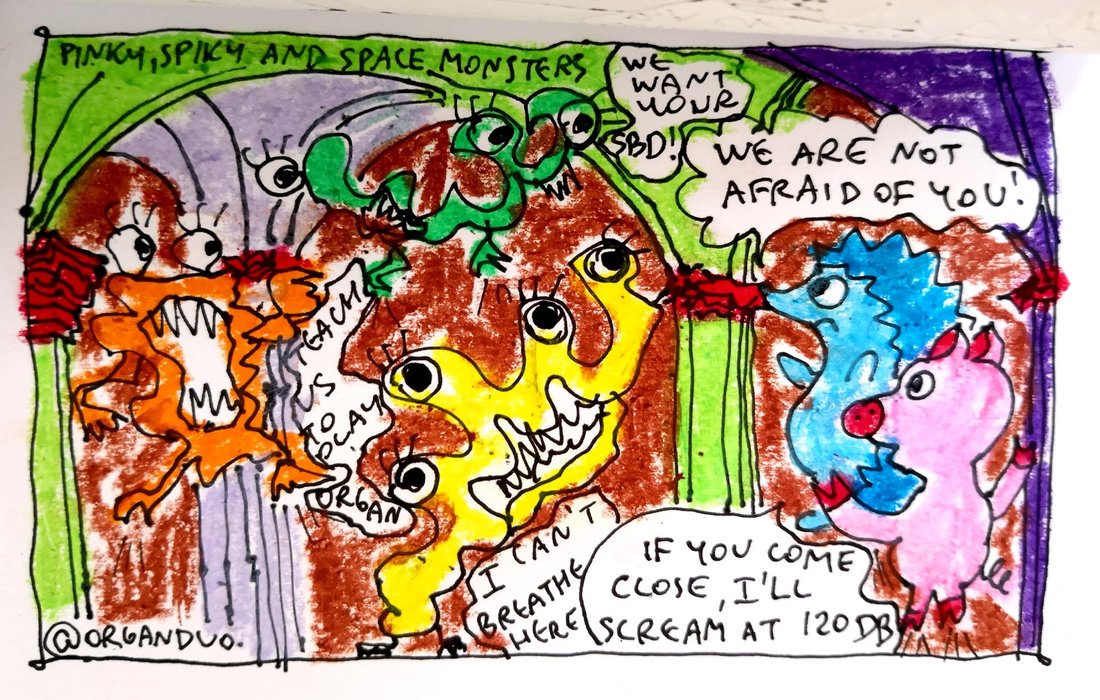
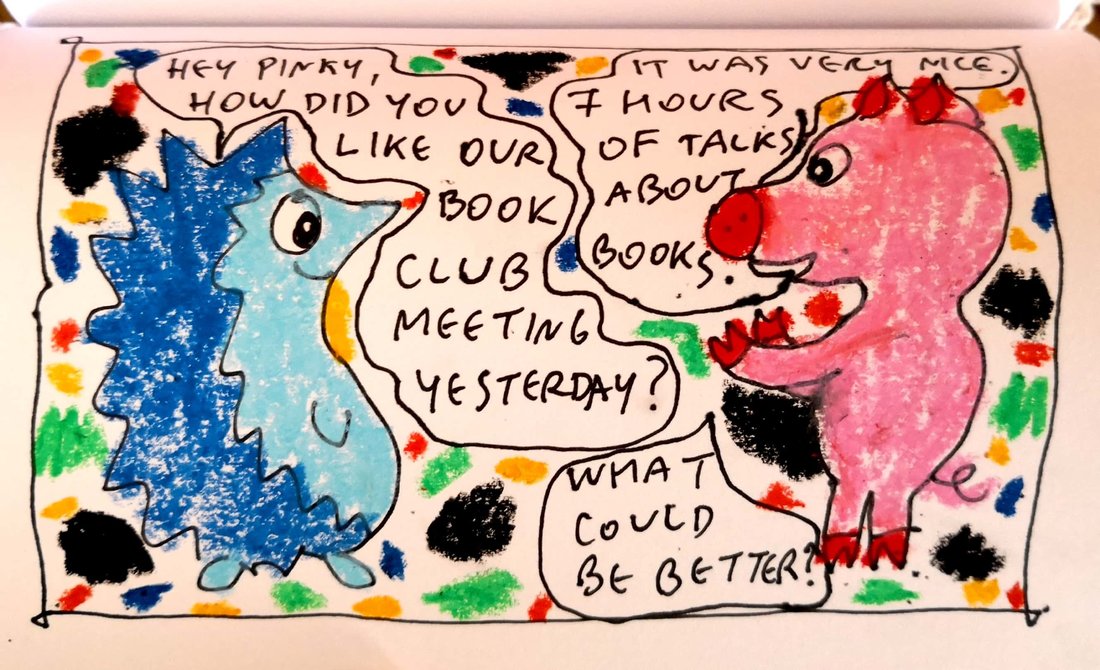
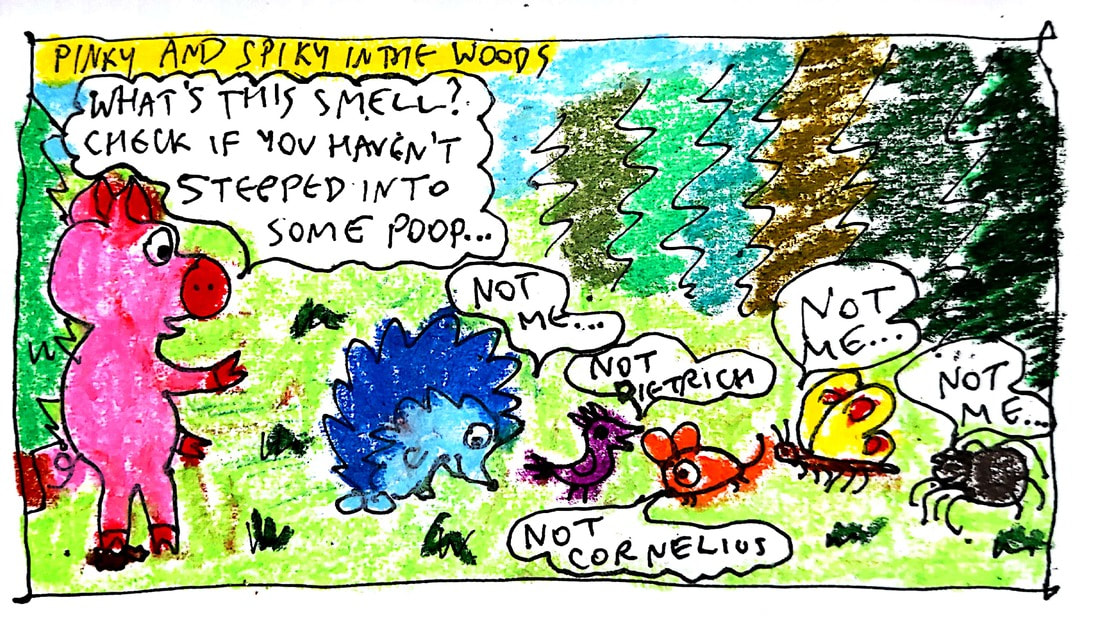
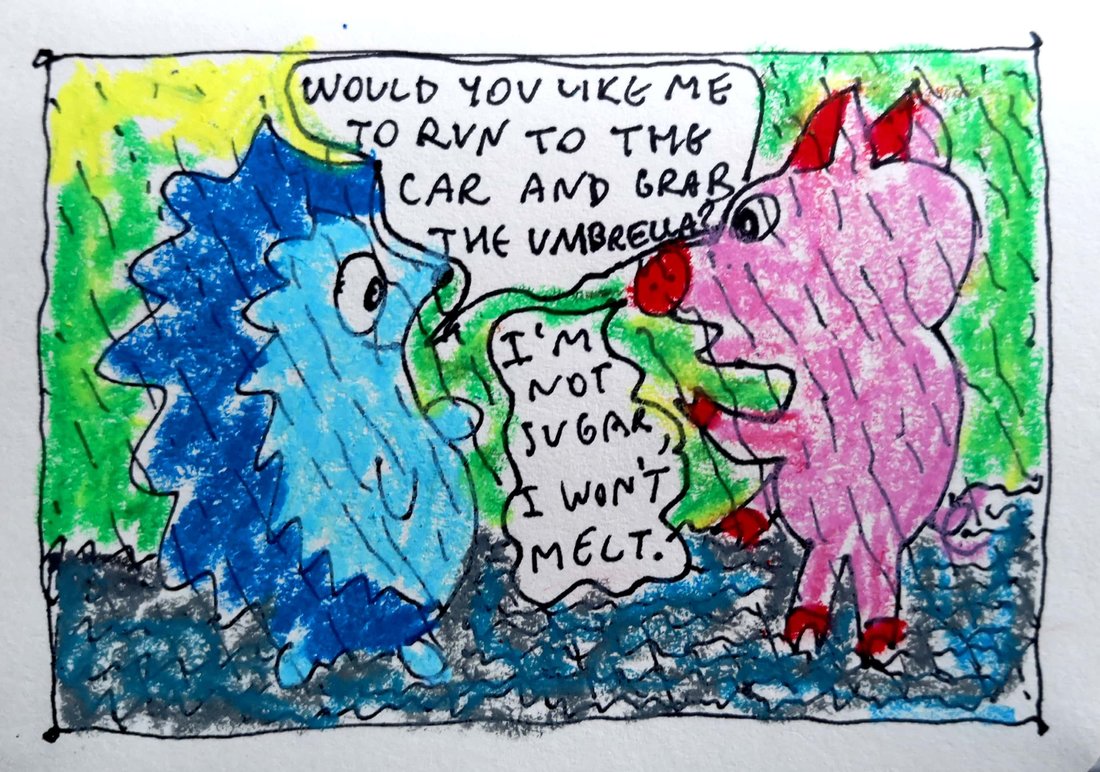
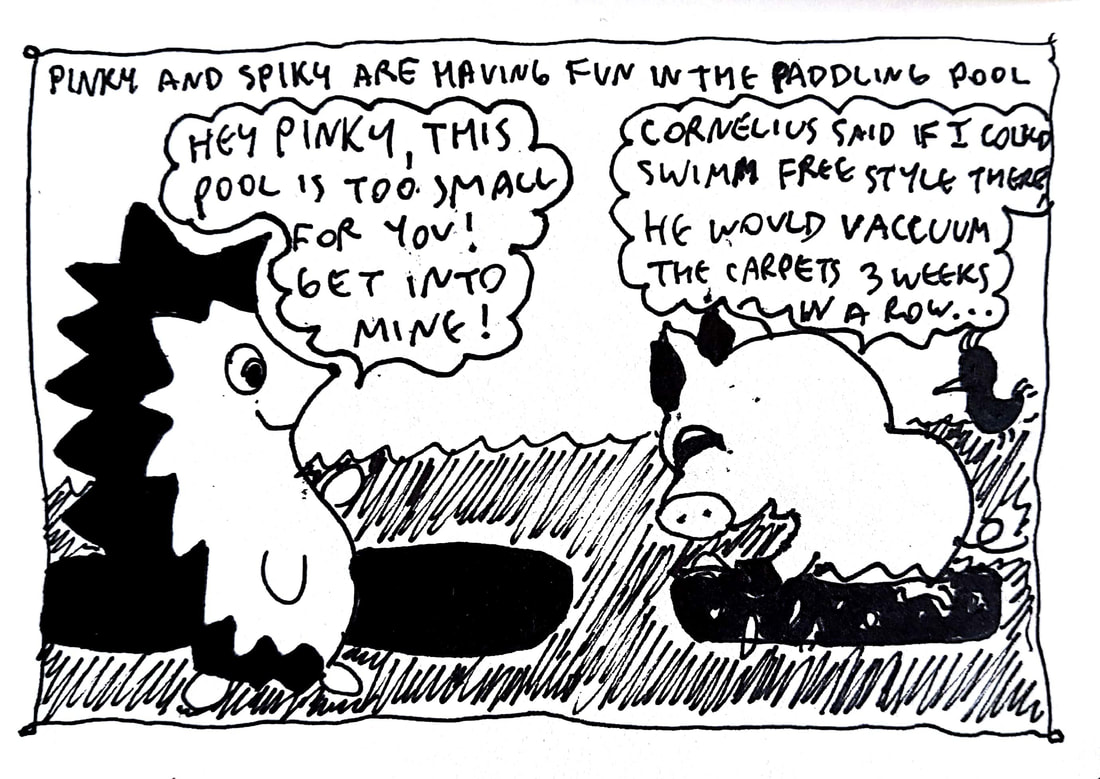
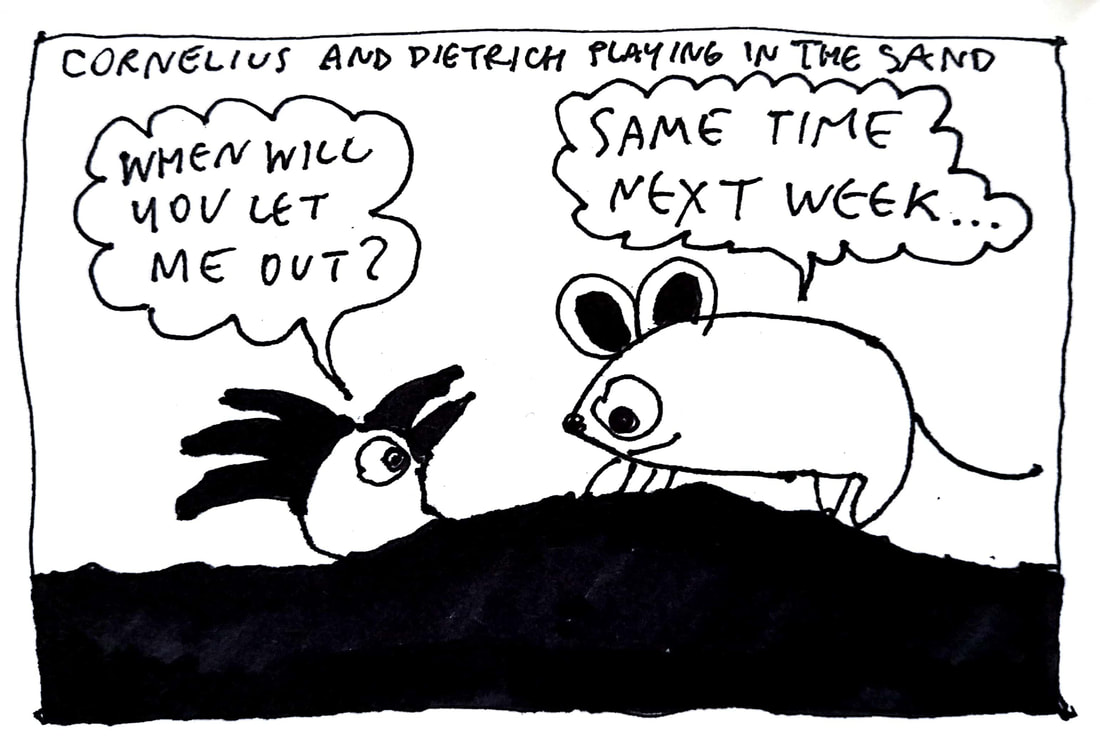
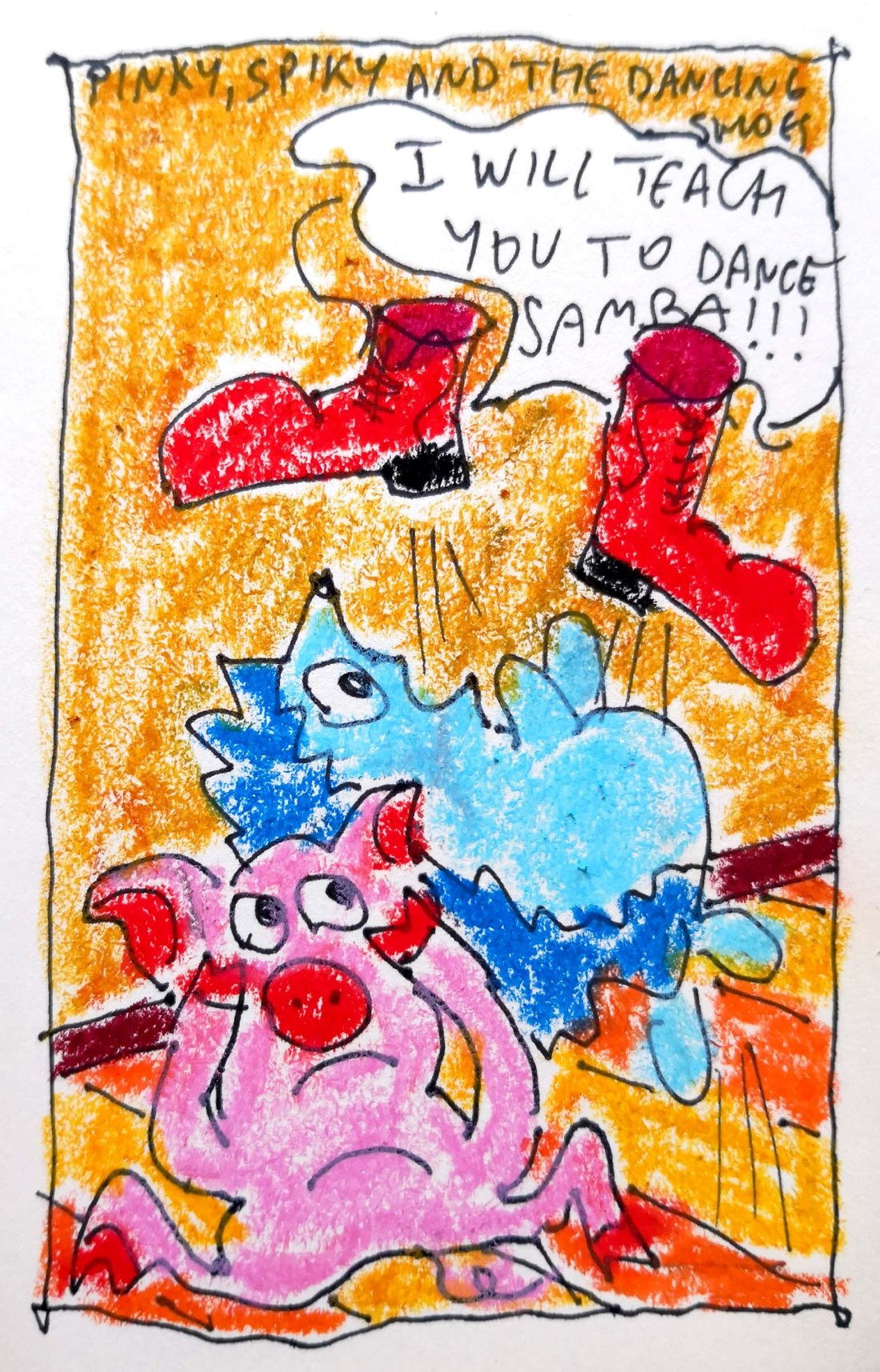
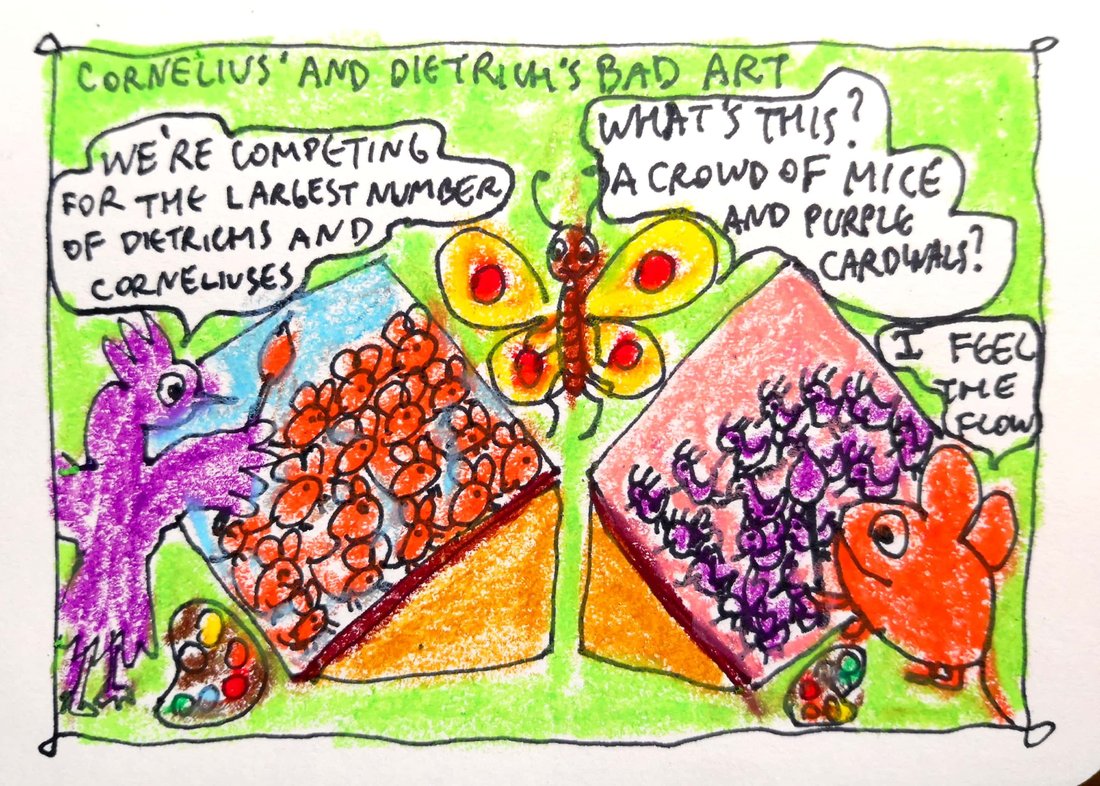
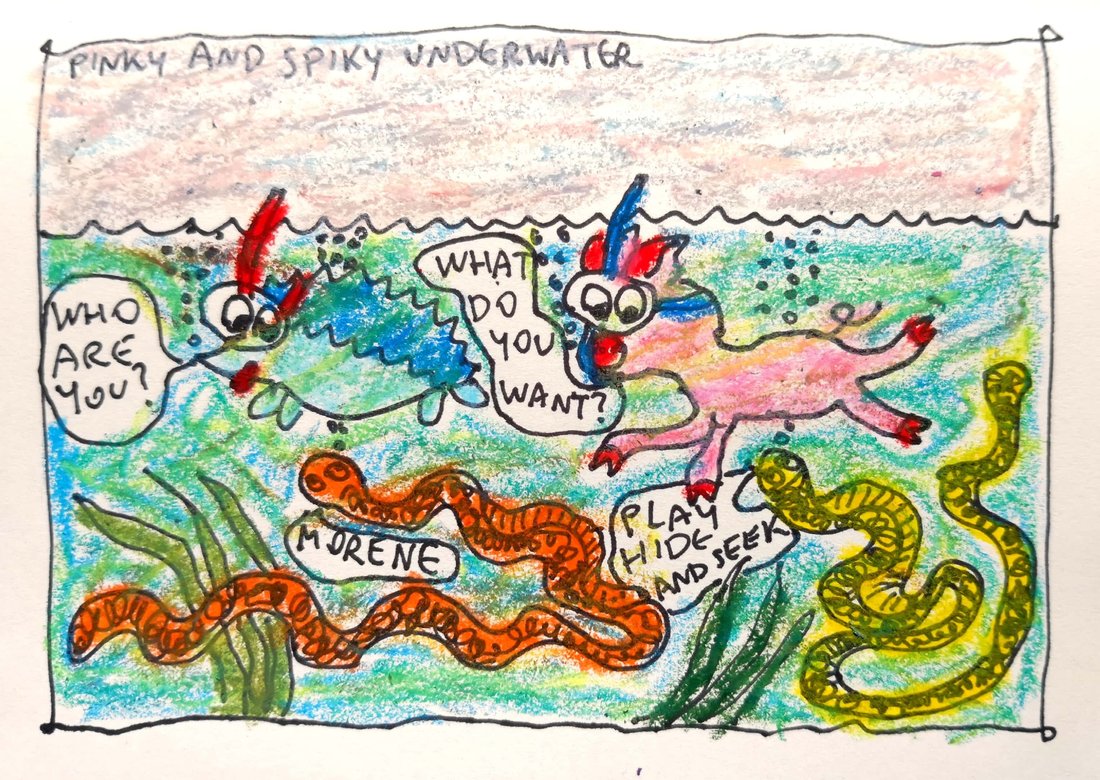



 RSS Feed
RSS Feed